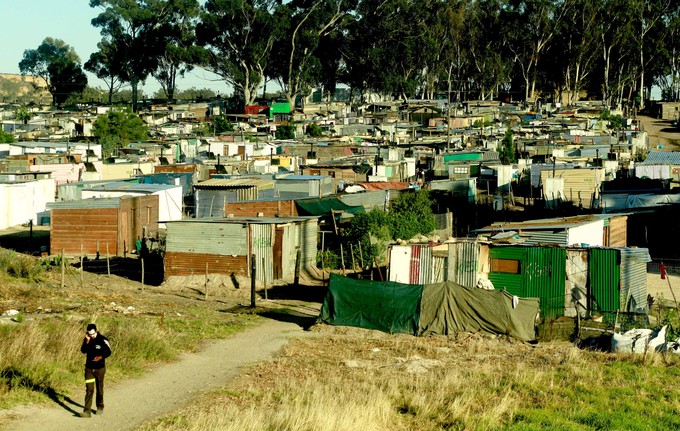The forgotten people of the Western Cape
Klipheuwel is an informal settlement about 10km north of Durbanville. It seldom gets any news coverage. Following a protest late last year over lack of services in the area, GroundUp’s photographer, Masixole Feni, spent time in the area.
According to the 2011 census, Klipheuwel had just under 2,300 residents living in 760 households, of whom over 60% live in shacks. Most residents do not have access to electricity, piped water or flush toilets in their homes.
Community members said that they are the “forgotten people of the Western Cape”. They complained about service delivery, particularly problems with toilets.
People in the informal settlement use bucket toilets. The buckets are covered with black plastic bags, and people defecate in the plastic bags. At 7:30am, over a dozen workers go from home to home in the informal settlement, making sure that the bucket toilets have been emptied. Nearly 100 plastic bags filled with human waste are collected four times a week.
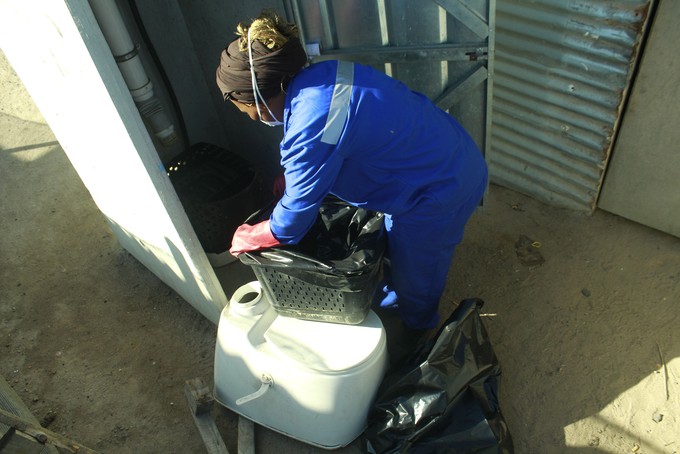
A worker empties a toilet.
The bags are then dropped on the corners of each street. A bakkie is supposed to arrive at 8am to collect the waste. But on this morning, it came at 10am. It was hot and children played unattended near the plastic bags full of faeces, with flies buzzing all over.
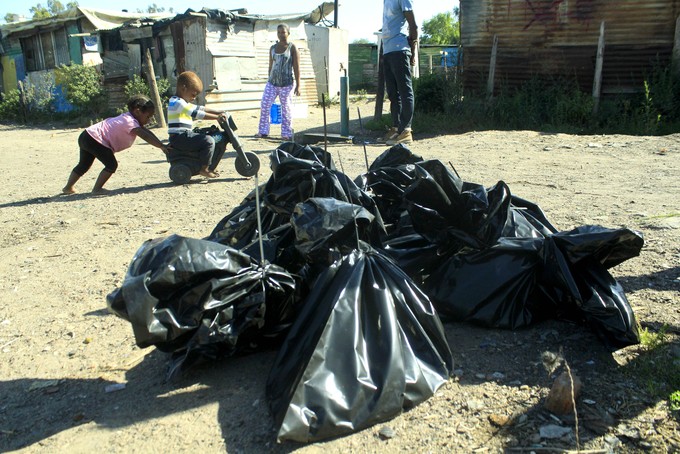
Children play near bags of faeces that are waiting to be collected.
The workers complain that they can’t clean the buckets or the area where the bags have been dropped because they are not provided with chemicals to clean. They also complain that they are only paid R1,200 every fortnight. They said they should be getting a decent wage because the work they do is so disgusting and people make fun of them.
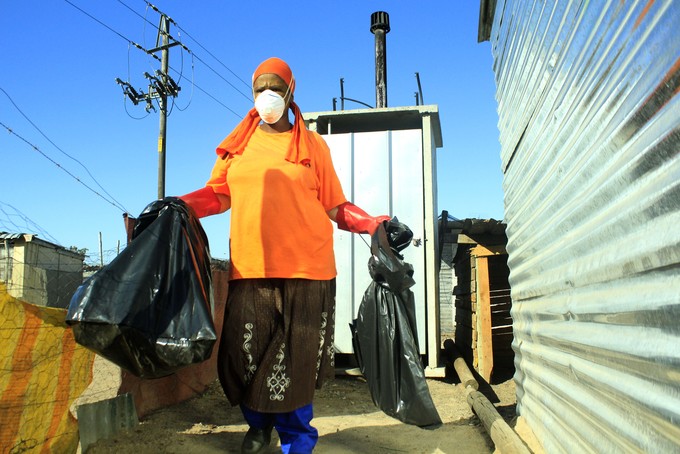
A worker carries faeces away.
Residents complain that the faeces are left for too long outside.
By 10:30am the bakkie was transporting the waste to Borcherds Quarry near the airport.
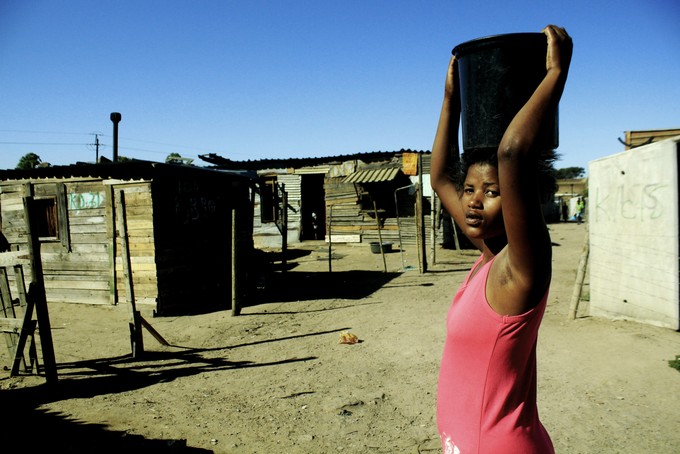
Sinelizwi Libele carries water home after having collected it from the communal tap.
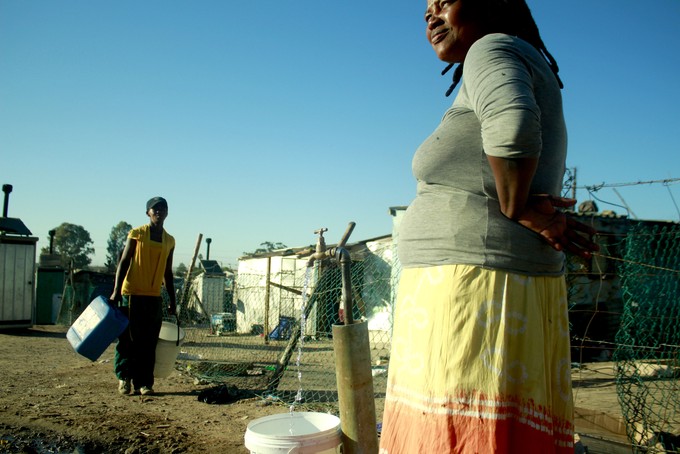
It is Noluthando Ngqwayitane’s turn to collect water.
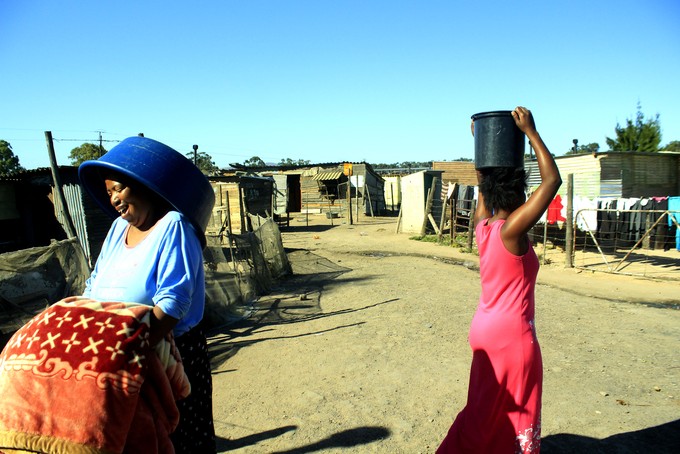
Anne Ngubo is on her way to the communal tap to wash her blanket. Sinelizwi Libele carries her water home.
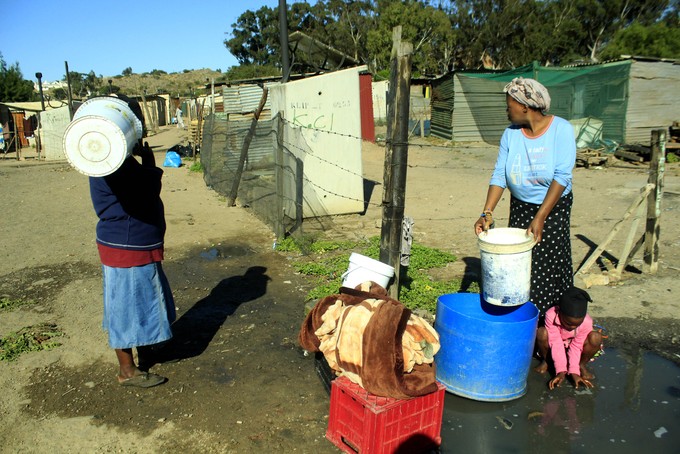
People queue from early in the morning to collect water.
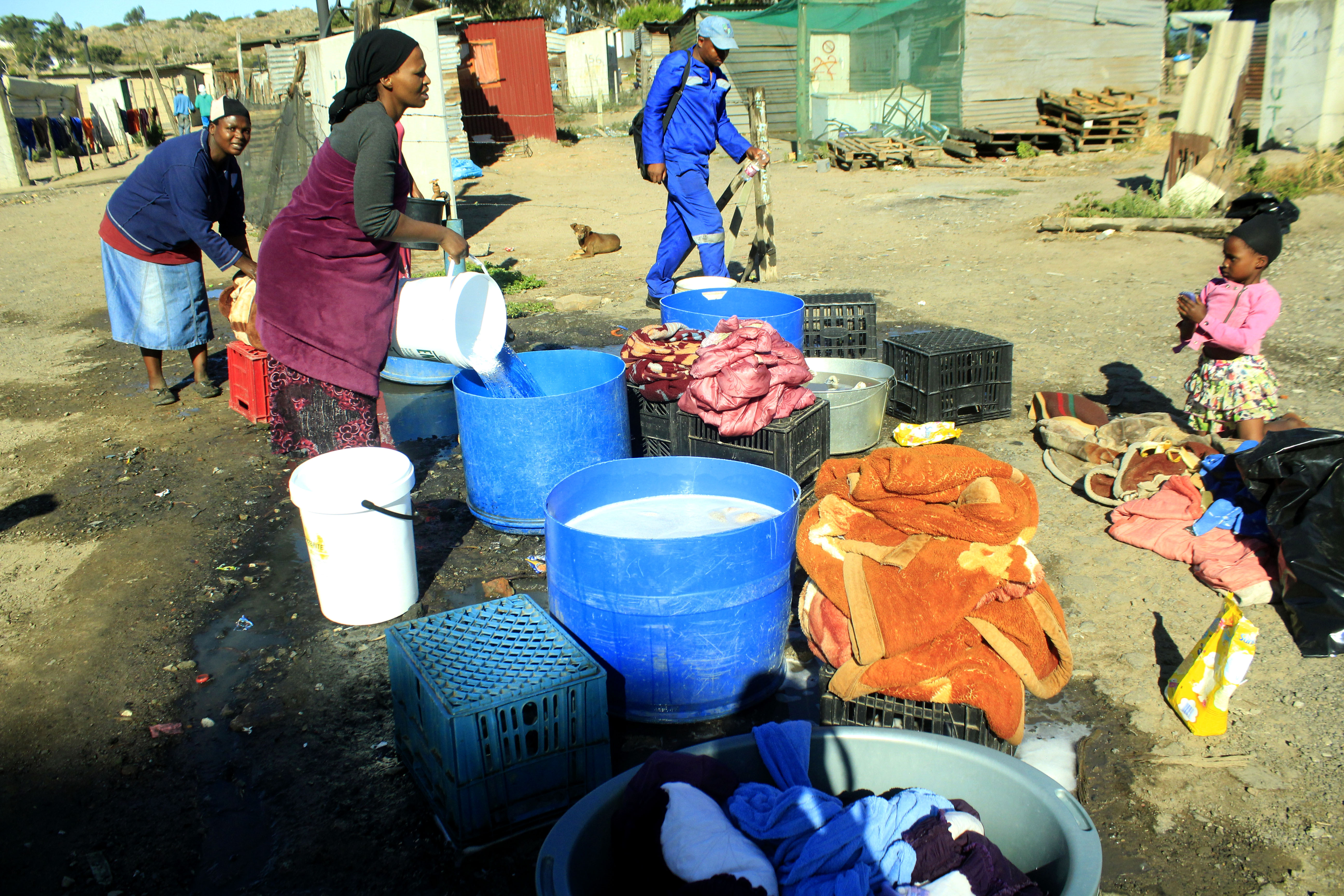
Many families wake at 5am to be first in line for the communal taps.
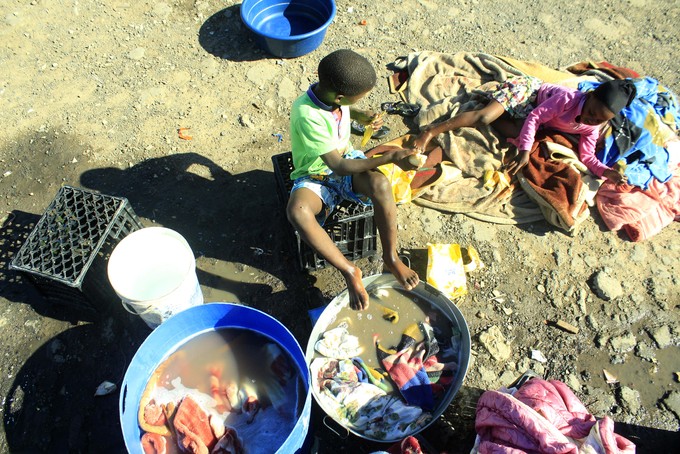
Children look after their washing while mom is doing another chore.
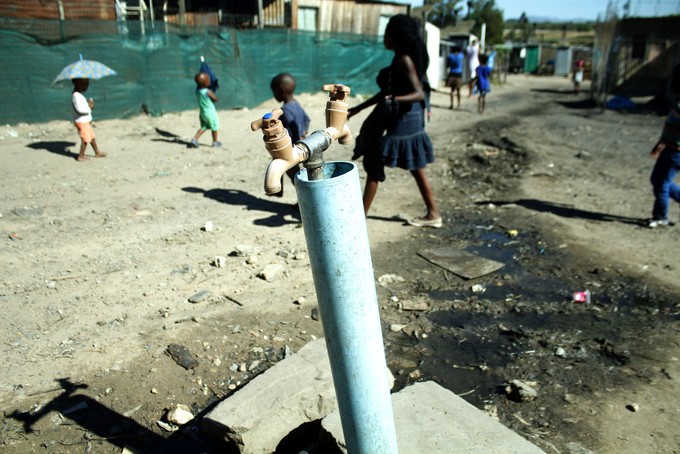
A communal tap. In the hot afternoon they are not used much.
Support independent journalism
Donate using Payfast

Don't miss out on the latest news
We respect your privacy, and promise we won't spam you.
Next: I was jailed for filming a police assault
Previous: “My son died trying to save our things”
© 2016 GroundUp. 
This article is licensed under a Creative Commons Attribution-NoDerivatives 4.0 International License.

